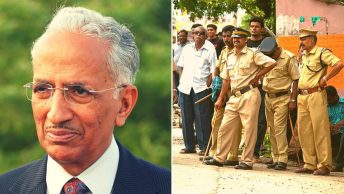Introduction
Recently, the Central government and the Supreme Court of India (“SC”) evoked criticism for recalling the judgement of Ritu Chhabria v. Union of India (“Ritu Chhabria”). The SC here held that if the investigating authority does not finish the investigation within the stipulated time and submits an incomplete chargesheet, then an accused, in a non bailable offence, becomes eligible for default (or regular) bail. Section 167 of Code of criminal procedure, 1973 (“CrPC”) grants default bail to an accused if charge sheet is not produced to the magistrate within the prescribed time limit.
The Union of India (“Union”) opposed the judgement on the ground that it is not always possible to complete an investigation within this stipulated time, and after filing a chargesheet, there is statutory power for investigating authority to conduct further investigation under section 173(8) CrPC. It seems that as per the Union, the existence of the power to conduct further investigation, extinguishes the right to mandatory bail even if an incomplete chargesheet is submitted before the stipulated period under section 167(2) CrPC. The judgement was quickly recalled by the Chief justice and the judgement’s application was put on hold, which has become a controversy in itself.
As per the authors, the argument of the Union is erroneous, because Ritu Chhabria does not affect the power to conduct further investigation. However, the judgement fails to explain that an incomplete chargesheet does not amount to a report under section 173(2) CrPC and left the question of conducting further investigation under section 173(8) CrPC unclear. The authors shed light on why such a clarity is required and critiques the existing practice of filing an incomplete chargesheet, and then filing multiple supplementary chargesheets under section 173(8) CrPC.
Chargesheet and an incomplete charge sheet
As noted in Dinesh Dalmia v. CBI, a charge-sheet under section 173(2) CrPC is a final report, filed to assist the court to decide whether cognizance is to be taken or not. It is required to be filed after the investigation is completed, and not to be submitted while the investigation is ongoing. As observed in Sharadchandra Vinayak Dongre v. State of Maharashtra, a chargesheet filed without completing an investigation amounts to an incomplete chargesheet, which cannot be treated as a police report within the meaning of section 173(2) CrPC. Therefore, on the basis of such an incomplete report, the magistrate cannot take cognizance under section 190(1)(b) CrPC.
To explain this, in Sunil Vasantrao Phulbande v. State of Maharashtra, (“Vasantrao”) the investigating authority had filed their chargesheet within the stipulated time of 90 days. However, this being a case concerning falling under the ambit of the Narcotic Drugs and Psychotropic Substances Act, 1985, the investigating authority had failed to submit a chemical analysts report in their charge sheet. The Bombay HC noted that without a chemical analyst’s report verifying the nature and type of the alleged seized substance, the cognizance cannot be taken. The submitted chargesheet being incomplete, the accused was set free on default bail.
This distinction between a charge sheet and incomplete chargesheet is pertinent as we will see in the next section as to how this has a connection with the procedure regarding submitting supplementary chargesheet.
The SC in Ritu Chhabria went through the history of filing incomplete chargesheets. It observed that in the CrPC of 1898 (“1898 Code”), the maximum period given to investigate was 15 days. However, in some cases, this time limit is not sufficient, and to ensure that the accused continues to be in custody, the investigating authority used to submit preliminary report, and then ask the magistrate to push commencement of trial and remand the accused under section 344 of 1898 code, until the final chargesheet was filed.
The law commission in its 14th and 41st report criticised presenting preliminary report for causing indefinite custody without trial. To protect the accused, guarantee of default bail under section 167(2) CrPC was introduced. However, as per Ritu Chhabria, preliminary report has now taken the form of incomplete chargesheet, filed to scuttle the right of default bail.
If such practise continues, where an incomplete chargesheet is used to extend detention, it would nullify the aim of section 167(2) and infringe the fundamental rights of an accused. Ritu Chhabria says that an incomplete chargesheet filed by the investigating authority does not disentitle an accused from seeking mandatory bail. Because in essence, this means that the investigation as required under section 173(2) is not complete and such an incomplete chargesheet does not fulfil the criteria of a report under section 173(2).
And thus, we get to the question of whether this position taken in Ritu Chhabria’s impacts the ability of investigating authorities to undertake further investigation.
Analysis with regards to section 173(8) CrPC
The 41st law commission noted that a narrow approach is taken by courts in not allowing police to reopen investigation after report is filed under section 173(2) CrPC. In the interest of justice, section 173(8) CrPC was introduced. This allows reopening a case when new evidence emerges after a report is filed, and empowers investigating authorities to conduct further investigation and submit supplementary chargesheet.
The term ‘Further’ in section 173(8) CrPC was explained in Rama Chaudhary v. State of Bihar to mean “additional, more, or supplemental. It is the continuation of the earlier investigation and not a fresh investigation or reinvestigation to be started ab initio wiping out the earlier investigation altogether.” The purpose of its inclusion is to allow a prosecuting agency to submit new evidences found after their submission of a complete chargesheet under section 173(2) CrPC.
Now, section 173(8) CrPC cannot be affected by the Ritu Chhabria case. Because, the ability to submit a supplementary charge sheet starts following the submission of a complete report under section 173(2) CrPC. The text of section 173(2) CrPC begins with “As soon as it is completed…”. Investigation is referred to as ‘It’ here. So, a report which is complete and comprehensive is necessary to be filed. Complete in respect of the evidence discovered, and comprehensive in respect of being sufficient to take cognizance. This complete chargesheet contains all evidence discovered through reasonable diligence by the investigating authority until that point.
The ability to conduct further investigation only kicks in when new and more evidence is uncovered. This new discovery must then be forwarded as supplementary chargesheet under section 173(8) CrPC. As a result, the process of filing a supplementary chargesheet begins post the procedure under section 173(2) CrPC is complete. But, filing a supplementary chargesheet does not mean that the earlier investigation was incomplete. Its purpose is to supplement the earlier filed chargesheet under section 173(2) CrPC. Because inexistent and unknown evidence, becomes available at a later stage. Therefore, section 173(8) CrPC is an enabling provision to allow further investigation upon discovery of new evidence. It does not, and cannot be considered to sanction filing of an incomplete chargesheet in the first instance.
In fact, the Kerala HC in K.M. Natarajan v. Sasidharan, and the SC in Arun Kumar v. state of M.P. have held that further investigation can be taken up, only after investigation is completed, and a report is submitted under section 173(2) CrPC.
Further, a supplementary chargesheet can be filed even after the trial has begun. The Kerala HC has noted in J. Prabhavathiamma v. State of Kerala that further investigation can be conducted even when the trial has reached its end, and that it is something which can be undertaken during the trial or even after the trial, a practice accepted by the SC too in CBI v. Rajesh Gandhi.
As noted earlier, there lies a difference between an incomplete chargesheet and a chargesheet. An incomplete chargesheet means that the investigation of the prosecution is not yet complete. As a practice, a charge sheet filed under section 173(2) CrPC is required to state whether the investigation is complete or not. The authors believe that SC in Ritu Chhabria did not clearly state that if the chargesheet says it is incomplete, investigation is to be continued. Only once it is completed, a chargesheet saying the same is to be filed to fulfil the requirement of section 173(2) CrPC. Because as held by Vasantrao, an incomplete chargesheet does not meet the requirement of section 173(2) CrPC. And only once a chargesheet is filed after completing the investigation, will the power to conduct ‘further investigation’ emerge.
Conclusion
So, Ritu Chhabria makes a case against filing incomplete chargesheet under section 173(2) CrPC with the intention of playing with a person’s right to statutory bail. A right, that will be lost if a chargesheet is submitted within the allotted time frame. Only after the chargesheet has been submitted per section 173(2) CrPC, the option of submitting a supplementary chargesheet becomes available for consideration. And by stating that the investigation is not complete in the chargesheet, the investigating authority cannot resort to filing multiple supplementary chargesheets. This would defeat the entire purpose of statutory bail. So, this clarity regarding the difference between an incomplete chargesheet and a complete chargesheet is required to be etched in stone. Without such a clarity, the existing practice will continue, where investigating authority submits an incomplete chargesheet under s. 173(2) CrPC and then say that they will submit the remaining chargesheet as supplementary chargesheet under section 173(8) CrPC, which is not the intention and purpose of both these provisions.








[…] Posted byChaitanya M. Hegde and Aalokaa J. Verma […]
Britishers wanted to remove all human rights of indians.For that reason they made Criminal laws in 1860
We are in 2023.
Any one may be arrested any time even with false allegation as FIR requires no Affidavit system and Complainant need not file Affidavit with complaint keeping any person in his custody upto 23 hours and go for remand report without any affidavit gives scope for Illegal arrests also .this section 167 criminal procedure code contents takes away Human rights and create lot of disturbance if contents are false .Affidavit system with complaint and complainant should come to court with complaint with Affidavit is required. Section 167 should be removed by amendament and new section required to protect human values and humanity and right to privacy and dignity and decency of person
Pl share your contact details.
This blog post sheds light on a critical issue in our judicial system. The use of an incomplete chargesheet as a tactic to prolong custody not only undermines the rights of the accused but also raises concerns about the integrity of the investigative process. It’s disheartening to see how legal provisions can be exploited. This calls for a re-evaluation of our legal frameworks to ensure justice is not delayed or denied. Thank you for addressing such an important topic!